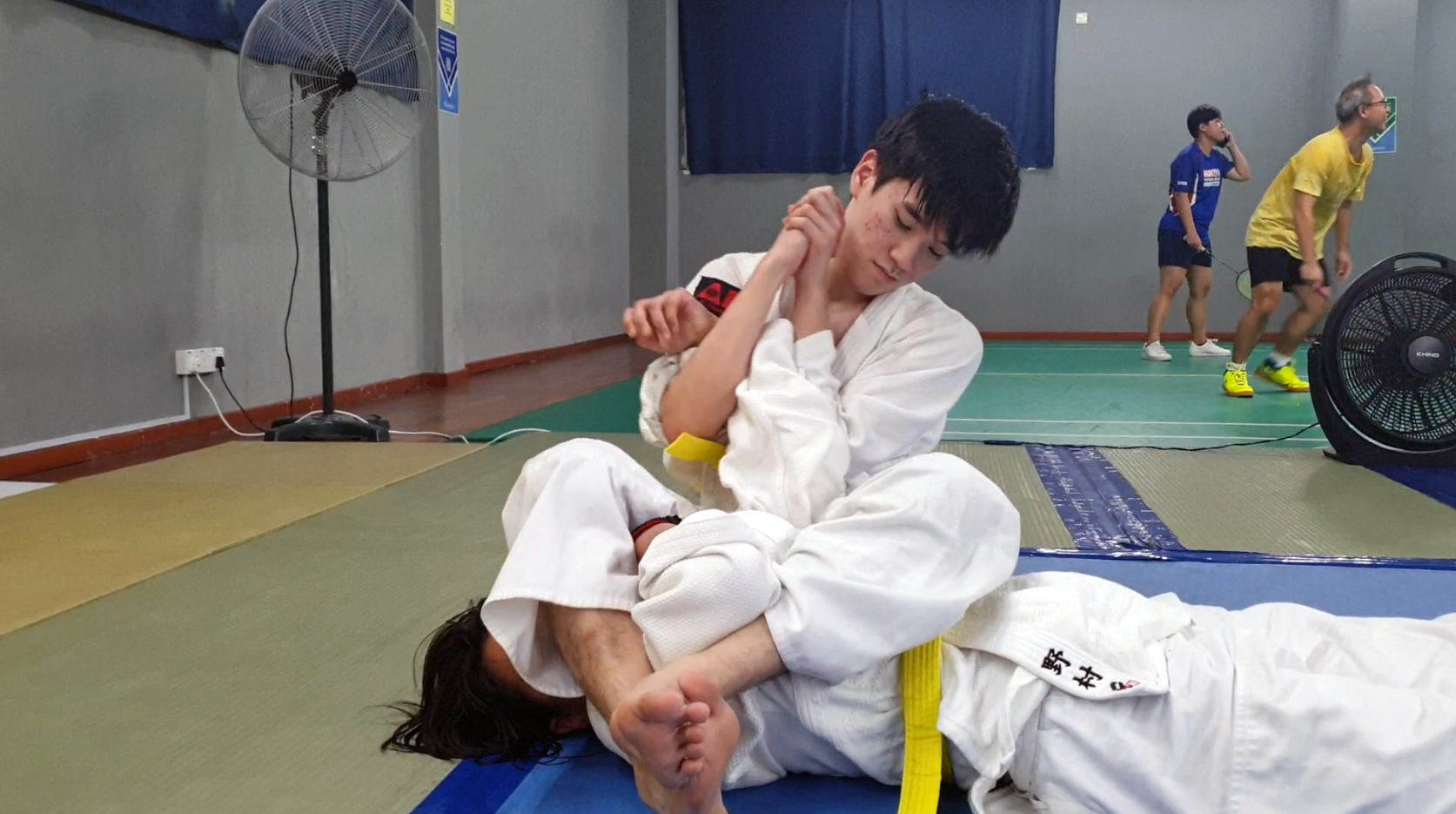
On Wednesday night we had a full house. It's always fun having lots of people on the mat. But I knew that meant the next day there would be very few coming for training.
I asked one of our lightweight guys, Ten Ren, if he would be coming for training on Thursday. I encouraged him to come and train with Menae, one of our lightweight girls. He said he would like to but he had something else to do that evening.
Then he asked if Menae had any other training partners for that evening. I said it doesn't look like it. "All right, maybe I'll come to the rescue," was his reply.
In judo we always like a big crowd because it's more fun that way, but it's when there are very few people that you make the biggest gains, because the instructor can focus on you. This was certainly the case on Thursday.
The only other person who came for training on Thursday (besides Menae and Ten Ren) was Amier, who is gearing up for competition next year. He had no training partner so I told him to work one-on-one with Nigel on gripping, stance, technical stuff, etc. It was a good chance for him to get very personalized training.
Normally, when we teach judo, we tend to focus on the technical aspects of how to do a throw or a groundwork move. We don't normally teach conceptual stuff because when you have a big group, they don't want to hear about such stuff. They want to get physical and start doing throws and ground moves.
On Thursday, I used the opportunity to teach Menae and Ten Ren about how to fight players who are either bigger or smaller. A very common mistake beginners make is to fight everybody the same way, even if their opponent is much bigger or much smaller.
"You can't fight different-sized opponents the way you would fight someone your own size," I told them, and explained that not only must they apply different techniques, they must also adopt different gripping strategies. I gave them some general guidelines on how to deal with bigger, stronger, opponents as well as smaller, nimbler ones. I think they got the idea.
For technical, I got them to work on something they were not used to, which is drop seoi-nage. Both were already very good with standing ippon-seoi-nage but they didn't have any experience doing the drop version.
Drop techniques are particularly important to have in your arsenal because they can be used against both a bigger opponent and a smaller opponent.
When you're up against a bigger, stronger opponent, chances are you can't lift them up to throw. More likely than not, you'll get countered when you try to do so. Unless you do a drop, which might surprise them. Smaller players throw bigger players with drop techniques all the time. It's the secret weapon of the small player.
Interestingly, it's also the drop seoi that will work for you when you're up against a much smaller opponent. It'd be hard to do a standing seoi-nage against someone much shorter but you can always do a dropper on them.
So the drop seoi-nage is very important as it works against bigger and smaller opponents (and of course, against same-sized opponents as well).
After that, I got them working on kouchi-makikomi, which is a natural complement to ippon-seoi. It took both of them some time to get used to the awkward entry that kouchi-makikomi requires. But towards their last set, they managed to get it.
Lastly, I had them working on yet another action-reaction move, which is ippon-osoto-gari. The principle is the same as with kouchi-makikomi in that you fake an ippon-seoi-nage first. It didn't take either of them very long to get this throw. Having done kouchi-makikomi, which took quite a while for them to get right, ippon-osoto was a walk in the the park.
After that, we moved on to groundwork. I had them doing juji-gatame rolls. Menae knew more variations because she had attended more of the juji-gatame sessions than Ten Ren, but he could do two key variations quite well. Which is already very good.
Overall it was a very productive session with both players having learned a whole lot more than they would have in a bigger class setting.
I appreciate that Menae came for Thursday's training despite having trained on Tuesday and Wednesday. It takes a lot out of a player to train three days in a row. But she did it, despite nursing two injuries.
As for Ten Ren, I'm impressed that he actually changed his plans in order to be there for his teammate. This is the kind of judo spirit that I wish to see in more of our players.
Judo is an individual sport but you cannot train alone. You need training partners to do judo. If you wish to have a reliable training partner, you need to be one yourself.
When your teammate needs someone to train with, do you say, "I'm sorry, I have something to do tonight," or do you say, "You know what, I'll reschedule what I'm doing and come train with you."?
If you are willing to make sacrifices for your training partner, they are very likely to return the favor. It's human nature to reciprocate kindness. But nobody likes to be a sucker.
If every time your teammate asks you to come for training, the reply they get is: "I have an important dinner tonight" or "I want to take it easy tonight" or "I've got some chores to do tonight," good luck to you when you come calling for training partners.
